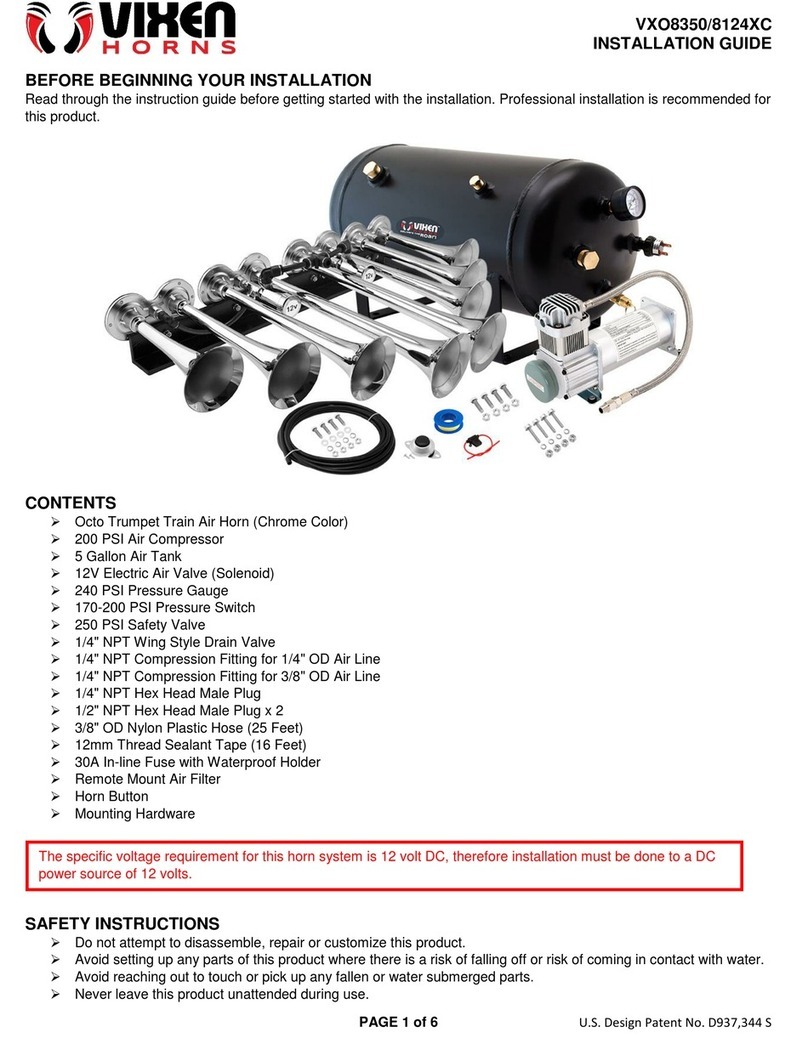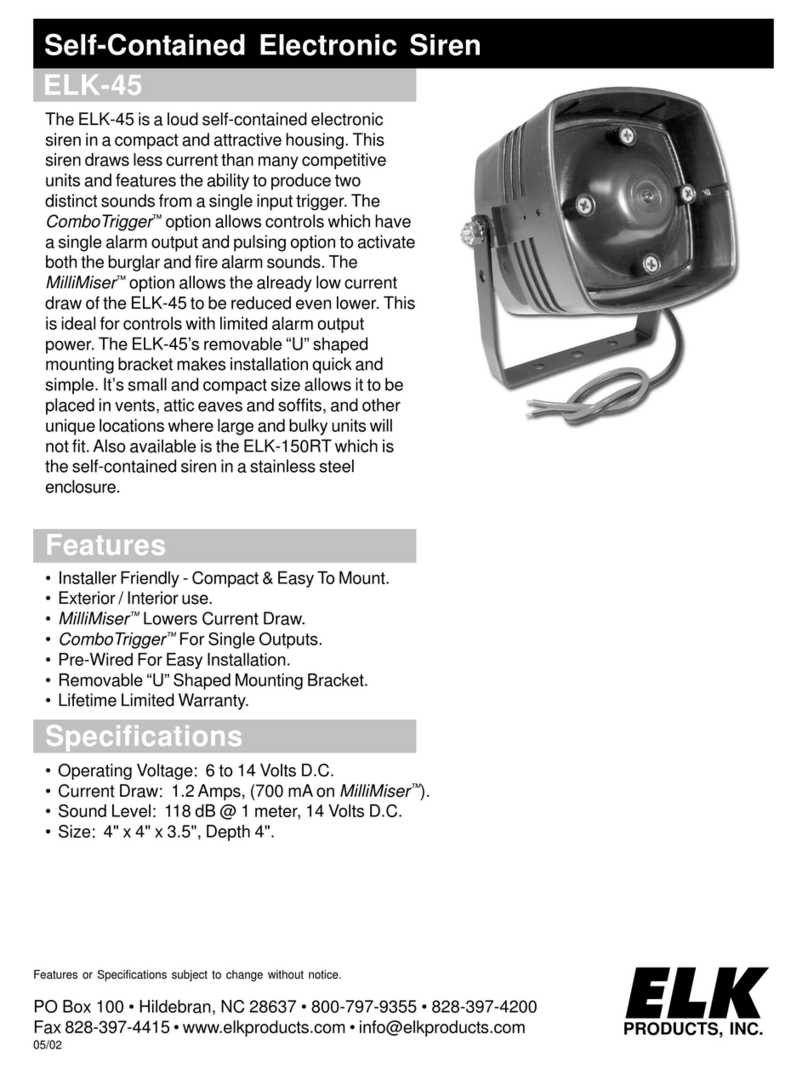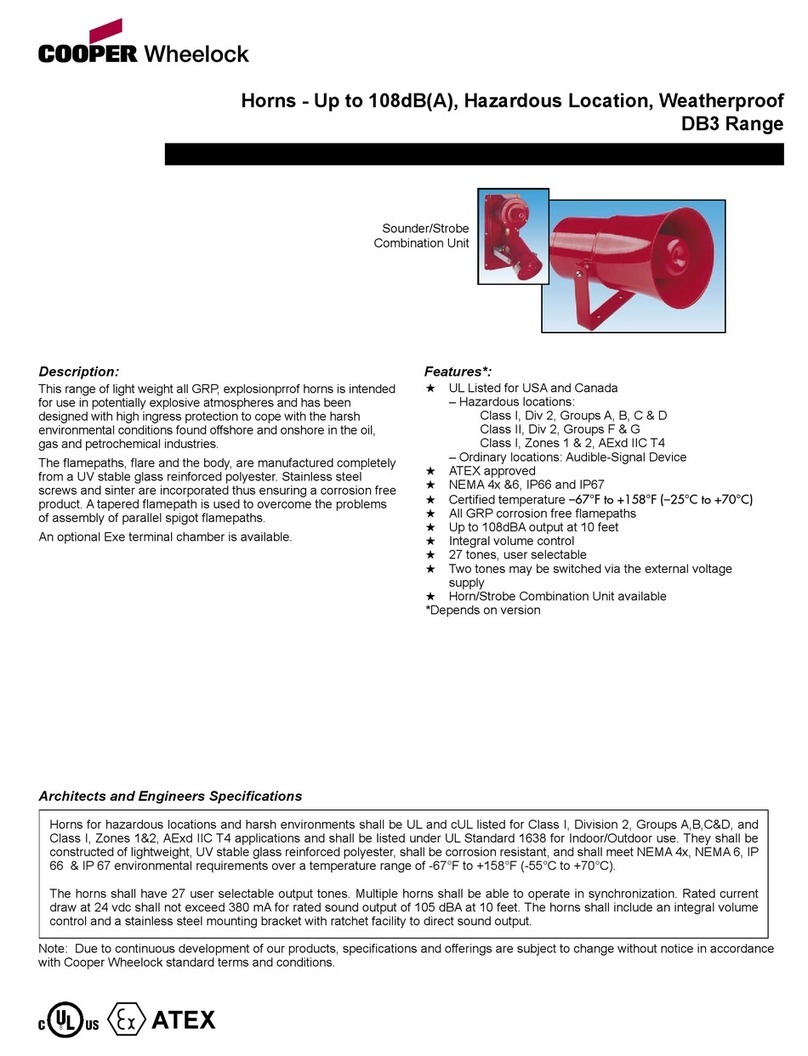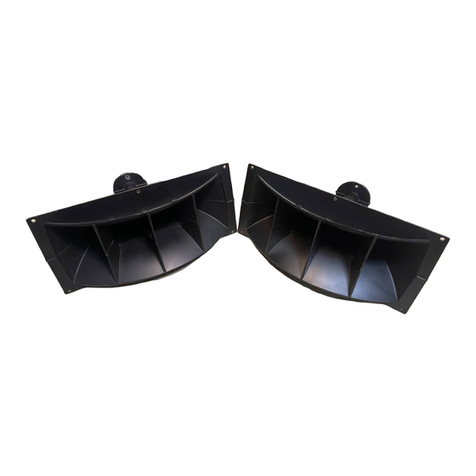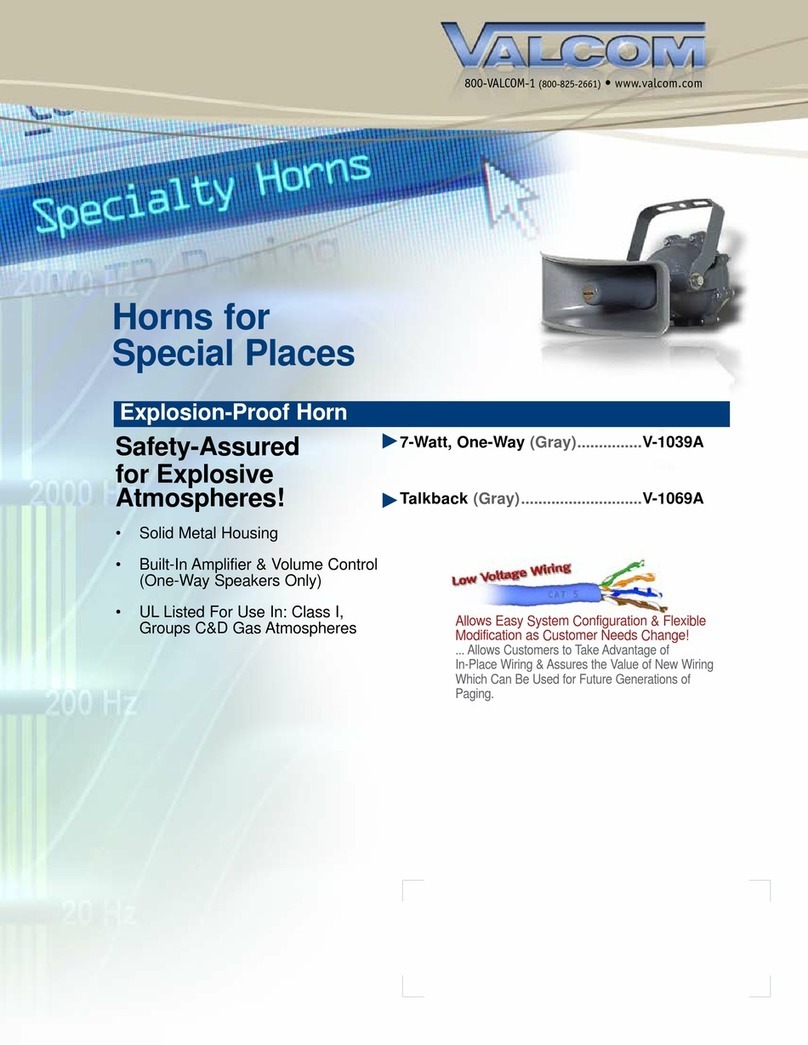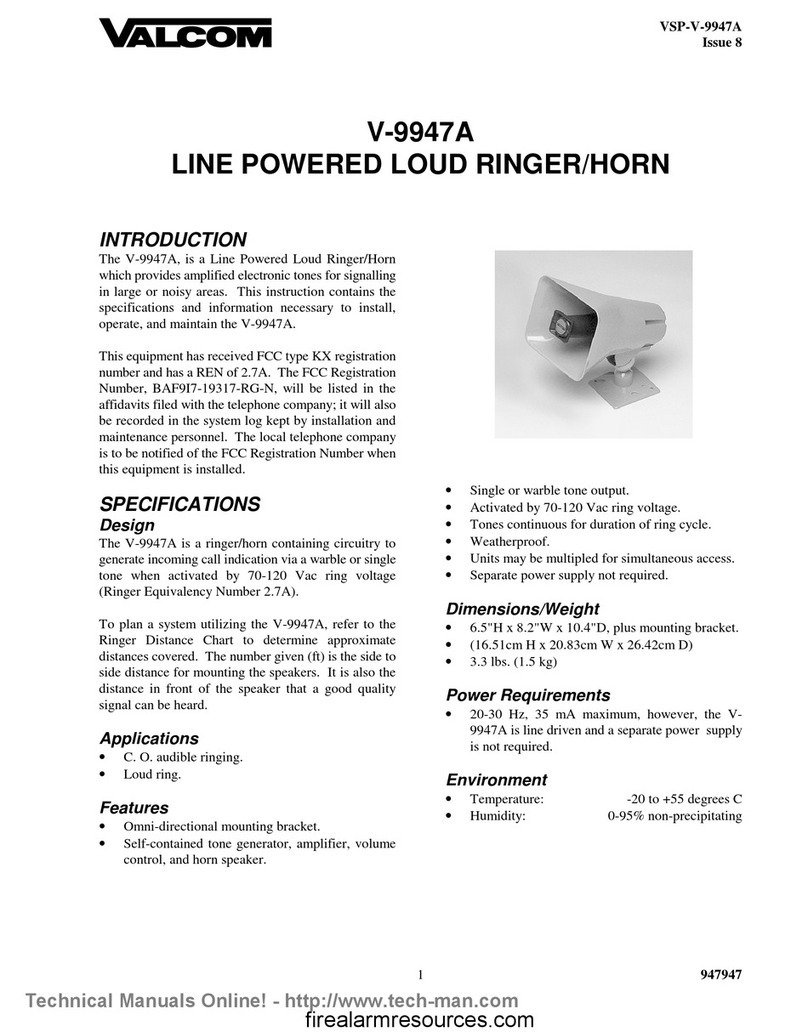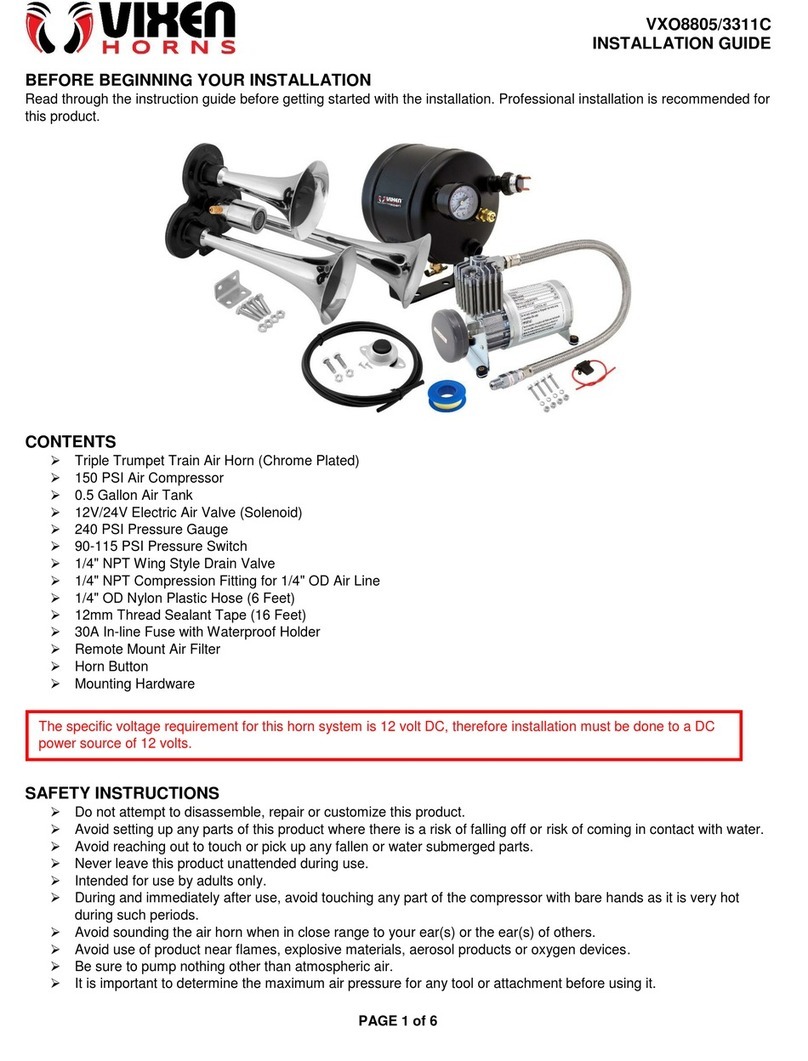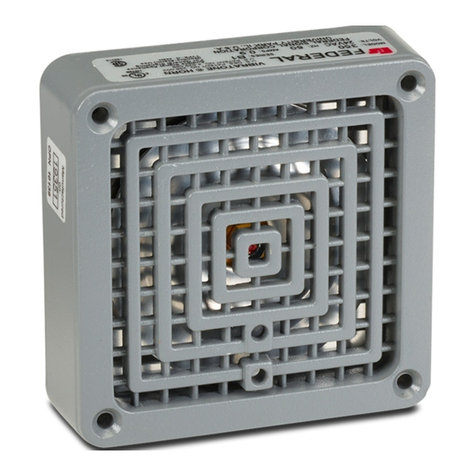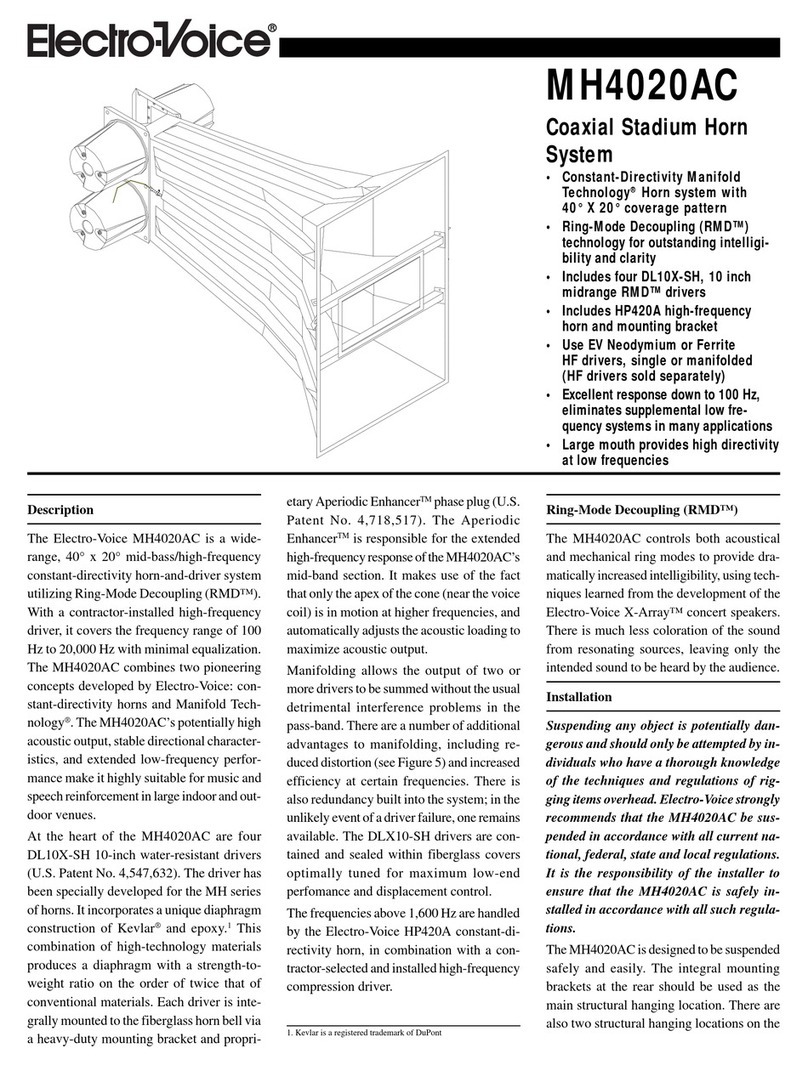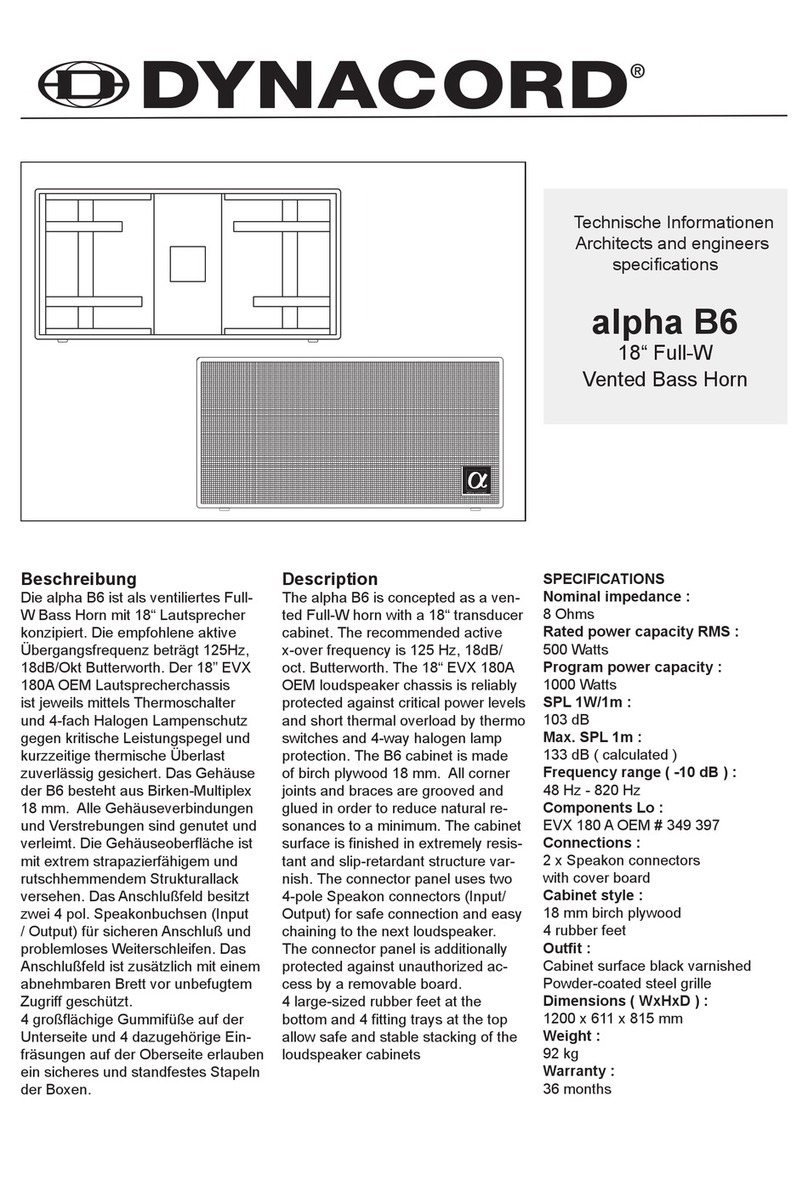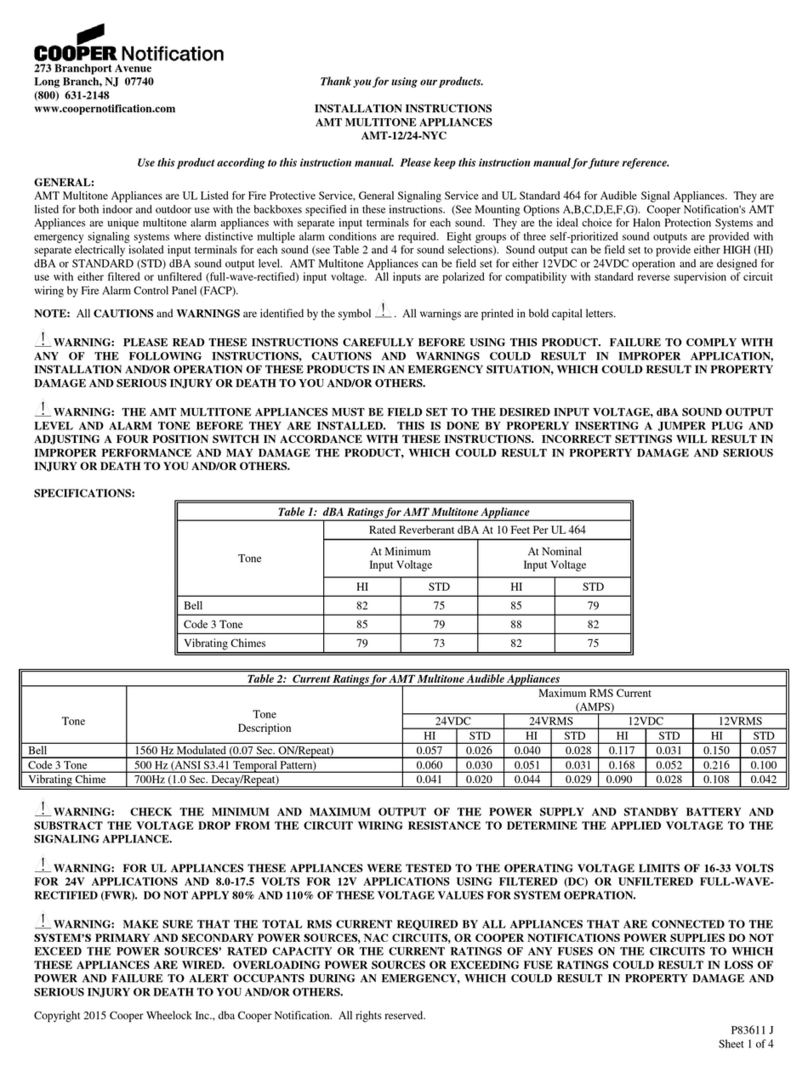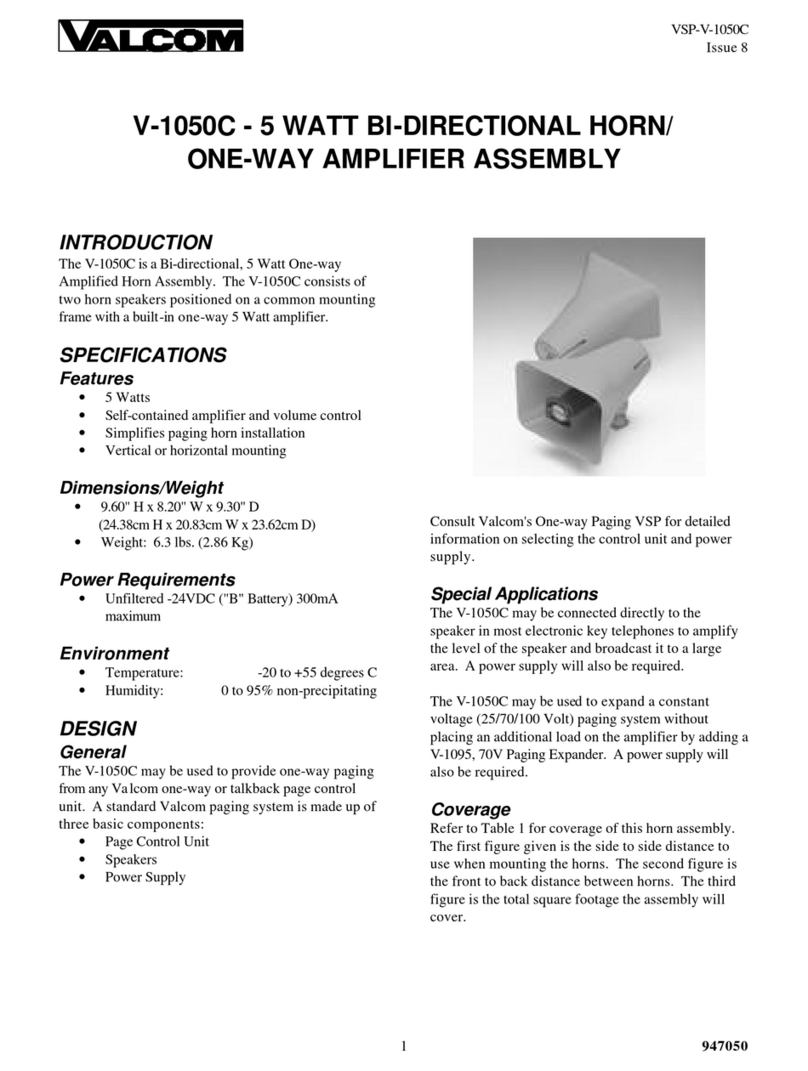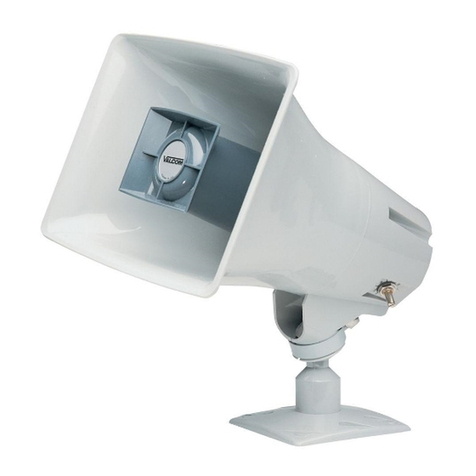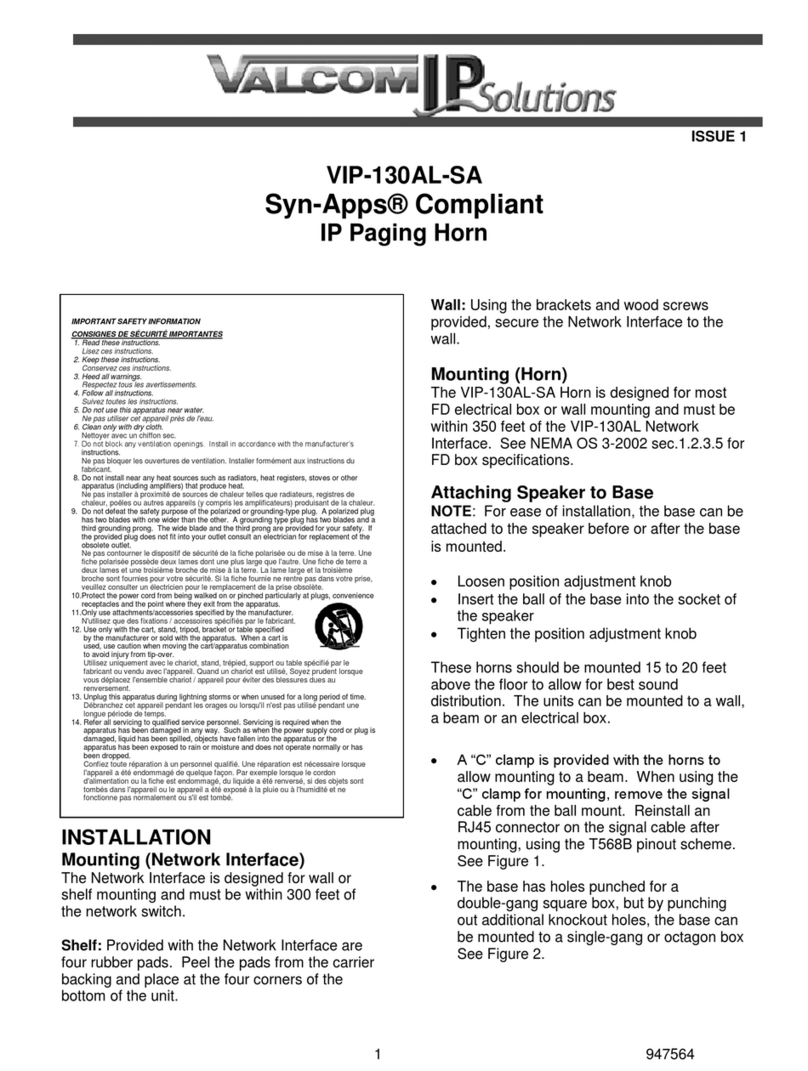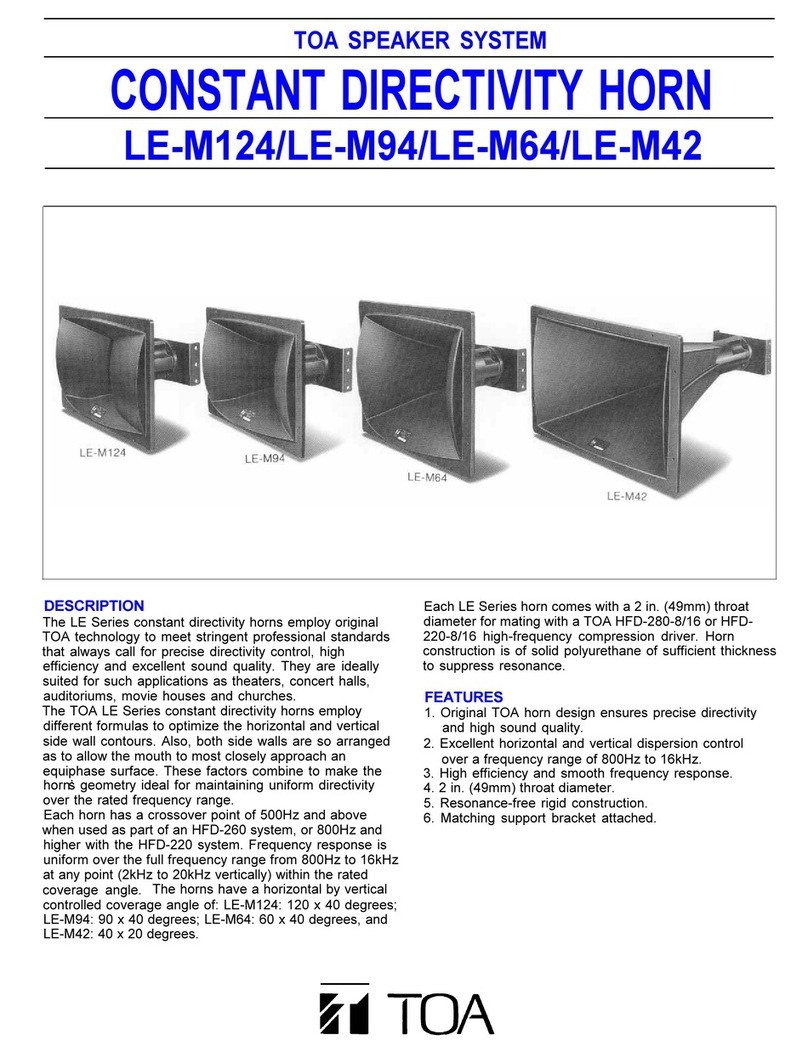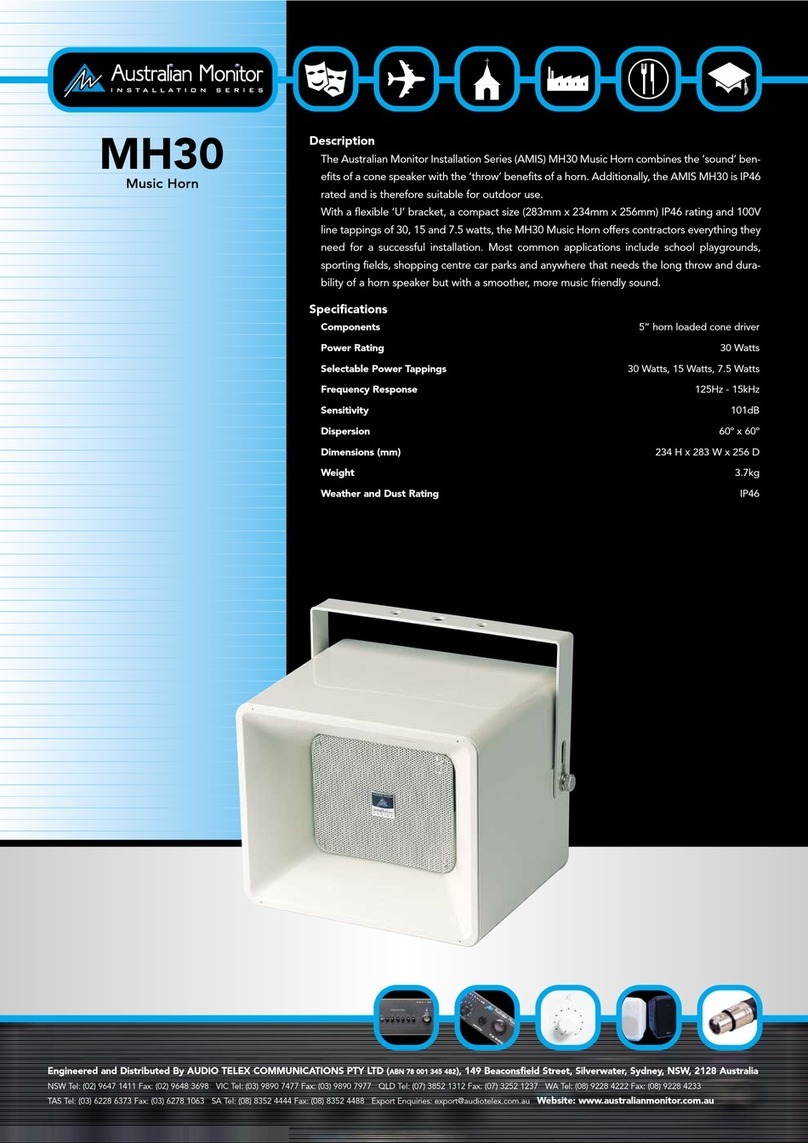
P82623 F
Sheet 2 of 6
Table 2: Current Ratings for AMT Multitone Audible Appliances
Tone
Tone Maximum RMS Current
(AMPS)
Description 24VDC 24VRMS 12VDC 12VRMS
HI STD HI STD HI STD HI STD
Horn Broadband Horn (Continuous) 0.108 0.043 0.092 0.050 0.210 0.058 0.230 0.103
Bell 1560 Hz Modulated (0.07 Sec. ON/Repeat) 0.057 0.026 0.040 0.028 0.117 0.031 0.150 0.057
March Time Horn Horn (0.25 Sec. ON/0.25 Sec. OFF/Repeat) 0.108 0.035 0.092 0.050 0.210 0.059 0.229 0.091
Code 3 Horn Horn (ANSI S3.41 Temporal Pattern) 0.108 0.043 0.092 0.050 0.210 0.057 0.241 0.093
Code 3 Tone 500 Hz (ANSI S3.41 Temporal Pattern) 0.060 0.030 0.051 0.031 0.168 0.052 0.216 0.100
Slow Whoop 500-1200Hz Sweep (4.0 Sec. ON/0.5 Sec. OFF/Repeat) 0.112 0.044 0.092 0.050 0.182 0.056 0.212 0.110
Siren 600-1200Hz Sweep (1.0 Sec. ON/Repeat) 0.102 0.038 0.078 0.043 0.177 0.055 0.197 0.107
HI/LO 1000/800 Hz (0.25 Sec. ON/Alternate) 0.064 0.030 0.049 0.034 0.131 0.028 0.186 0.088
Vibrating Chime 700Hz (1.0 Sec. Decay/Repeat) 0.041 0.020 0.044 0.029 0.090 0.028 0.108 0.042
Table 3: ULC Directional Characteristics
24VDC Horizontal -3dBA: 35 degrees left, 35 degrees right
-6dBA: 55 degrees left, 55 degrees right
Vertical -3dBA: 35 degrees upward, 35 degrees downward
-6dBA: 65 degrees upward, 55 degrees downward
WARNING: CHECK THE MINIMUM AND MAXIMUM OUTPUT OF THE POWER SUPPLY AND STANDBY BATTERY AND SUBSTRACT THE
VOLTAGE DROP FROM THE CIRCUIT WIRING RESISTANCE TO DETERMINE THE APPLIED VOLTAGE TO THE SIGNALING APPLIANCE.
WARNING: FOR UL/ULC APPLIANCES THESE APPLIANCES WERE TESTED TO THE OPERATING VOLTAGE LIMITS OF 16-33 VOLTS FOR
24V APPLICATIONS AND 8.0-17.5 VOLTS FOR 12V APPLICATIONS USING FILTERED (DC) OR UNFILTERED FULL-WAVE-RECTIFIED (FWR).
DO NOT APPLY 80% AND 110% OF THESE VOLTAGE VALUES FOR SYSTEM OEPRATION.
WARNING: MAKE SURE THAT THE TOTAL RMS CURRENT REQUIRED BY ALL APPLIANCES THAT ARE CONNECTED TO THE SYSTEM’S
PRIMARY AND SECONDARY POWER SOURCES, NAC CIRCUITS, OR WHEELOCK’S POWER SUPPLIES DO NOT EXCEED THE POWER
SOURCES’ RATED CAPACITY OR THE CURRENT RATINGS OF ANY FUSES ON THE CIRCUITS TO WHICH THESE APPLIANCES ARE WIRED.
OVERLOADING POWER SOURCES OR EXCEEDING FUSE RATINGS COULD RESULT IN LOSS OF POWER AND FAILURE TO ALERT
OCCUPANTS DURING AN EMERGENCY, WHICH COULD RESULT IN PROPERTY DAMAGE AND SERIOUS INJURY OR DEATH TO YOU AND/OR
OTHERS.
When calculating the total currents: Use Table 2 to determine the highest value of “RMS Current” for an individual AMT (across the expected operating
voltage range of the AMT’s), then multiply these values by the total number of AMT’s; be sure to add the currents for any other appliances powered by
the same source and include any required safety factors.
If the peak current exceeds the power supplies’ peak capacity, the output voltage provided by the power supplies may drop below the listed voltage
range of the appliances connected to the supply and the voltage may not recover in some types of power supplies. For example, an auxiliary power
supply that lacks filtering at its output stage (either via lack of capacitance and/or lack of battery backup across the output) may exhibit this characteristic.
The AMT Multitone audible appliances produce a brief inrush current that lasts for just 2 microseconds but can reach a peak value of 8.0 Amps (11.2
amps for FWR input).
AMT MULTITONE SETTINGS:
The Jumper Plug (DP1) and Switch (SW1) of the AMT Multitone Appliances, shown in Figure 1, are used to set the input voltage dBA sound output level
and alarm tone. The factory settings are shown below. Read these instructions carefully before changing any of these factory settings.
Figure 1:
PC Board Layout Showing Location
of Jumper Plug (DP1) and Switch (SW1)
+PRI 1-
12
4
3
2
1
24
SW1
ON
+PRI 2- +PRI 3-
12
4
3
2
1
24
SW1
ON
SLIDE HERE FOR (0)
SLIDE HERE FOR (1)
The Factory Settings are:
24VDC: DP1 SET ON 24
HIGH dBA: SW1 POS 1 = 1
Priority 1 (PRI 1) HORN TONE:
Priority 2 (PRI 2) BELL TONE:
Priority 3 (PRI 3) SIREN TONE:
}SW1 POS 2, 3, 4 = 1, 1, 1

